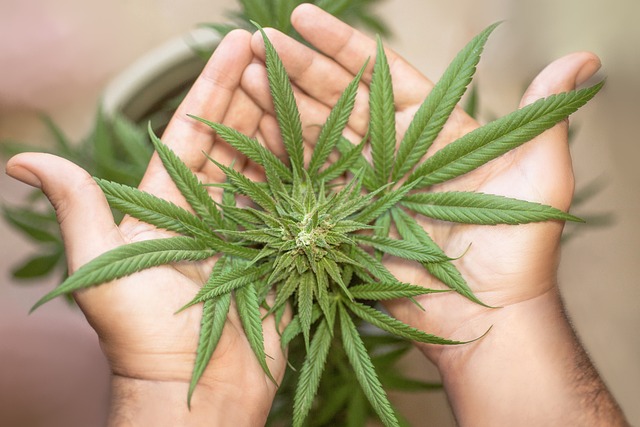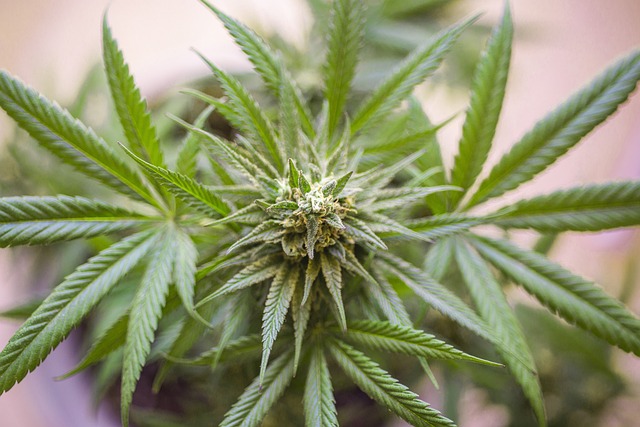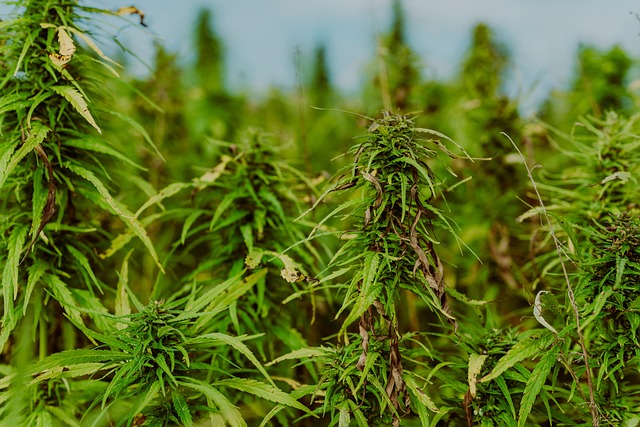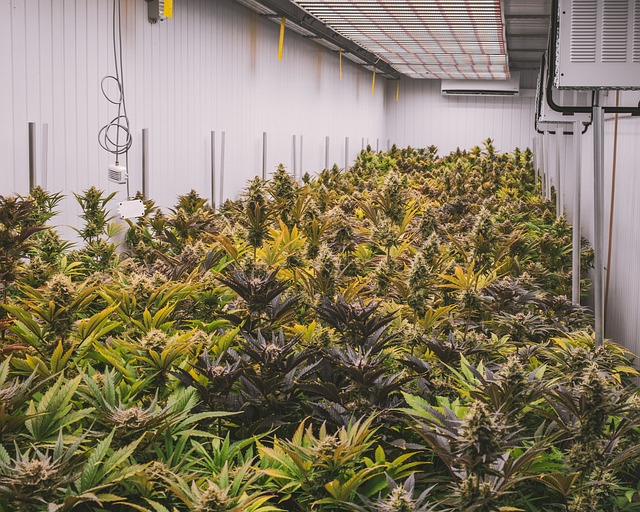The THCA flower, rich in non-psychoactive THCA, has gained attention for its potential health benefits, including anti-inflammatory, neuroprotective, and analgesic effects. Unlike THC, it supports wellness without intoxication, and its synergistic interaction with CBD and terpenes—known as the entourage effect—enhances these therapeutic properties. Preliminary studies suggest its effectiveness in managing conditions like arthritis. The combination of THCA with CBD is notable for its ability to temper psychoactive effects while amplifying therapeutic qualities, offering a more comprehensive therapeutic experience. This is further enriched by the unique terpene profiles found in different strains, which modify the absorption and effects of both cannabinoids. The THCA flower's potential, when combined with CBD, highlights its role as a subject of growing interest within the wellness and medical cannabis communities for its CBD synergy with terpenes, potentially offering a balanced and effective therapeutic option.
Discover the transformative potential of THCA flower, a natural wellness powerhouse that’s gaining attention in the health and wellness sphere. Unlike its psychoactive counterpart, Delta-9 THC, THCA presents a unique set of benefits that, when combined with the therapeutic properties of CBD and the aromatic influence of terpenes, offer a holistic approach to health and relief. This comprehensive article delves into the multifaceted advantages of THCA flower, from its pain-relieving and anxiety-soothing effects to its role in maintaining overall wellness. Whether you’re exploring alternative pain management options or seeking natural ways to alleviate stress, THCA flower stands out for its promising benefits and synergistic interaction with cannabinoids and terpenes. Join us as we navigate the science behind THCA, its potential for therapeutic use, and how it differs from other cannabinoids. With insights into cultivation practices, legal considerations, and real-life user experiences, this article is your guide to understanding the true potential of THCA flower in your wellness routine.
- Unlocking the Potential of THCA Flower: A Deep Dive into Its Benefits
- THCA vs CBD: Understanding the Key Differences
- The Entourage Effect: THCA Flower and CBD Synergy with Terpenes
Unlocking the Potential of THCA Flower: A Deep Dive into Its Benefits

Delta-9-tetrahydrocannabinolic acid (THCA) is a non-psychoactive cannabinoid found in the cannabis plant, which becomes psychoactive THC when heated. The THCA flower, rich in this cannabinoid, has garnered attention for its potential health benefits. Unlike its isomer THC, THCA does not induce intoxication, making it an appealing option for those seeking wellness support without the ‘high’ associated with traditional cannabis consumption. One of the key aspects of THCA flower’s benefits lies in its synergy with other cannabinoids and terpenes, particularly when it comes to CBD. This synergy is often referred to as the ‘entourage effect,’ where the compounds work together to enhance each other’s effects. For instance, CBD can temper the psychoactive effects of THC while amplifying its therapeutic qualities, and similarly, terpenes contribute additional health benefits and aromatic properties that can influence mood and cognitive function.
Research suggests that THCA flower may offer a range of wellness benefits, including anti-inflammatory, neuroprotective, and analgesic effects. Preliminary studies indicate that THCA could be effective in managing pain and inflammation due to its interaction with the body’s endocannabinoid system, which plays a role in regulating various physiological processes. Furthermore, the anti-inflammatory properties of THCA are thought to be beneficial for individuals with conditions like arthritis, where chronic inflammation is a significant factor. The potential for THCA flower to contribute positively to one’s health regime is an area of growing interest, with ongoing research further elucidating its therapeutic potential, especially when combined with CBD and the diverse array of terpenes found in cannabis.
THCA vs CBD: Understanding the Key Differences

Cannabidiolic Acid (THCA) and Cannabidiol (CBD) are two prominent compounds found in the cannabis plant that offer distinct benefits. While both THCA and CBD interact with the human endocannabinoid system, their effects differ significantly due to their unique molecular structures and how they engage with our bodily receptors.
THCA is the acidic form of THC (Tetrahydrocannabinol) and is present in raw cannabis flowers or those preserved in cold temperatures to avoid decarboxylation, a process that converts THCA into THC. Unlike its psychoactive counterpart THC, THCA does not induce a high but has been studied for its potential anti-inflammatory, neuroprotective, and analgesic properties. On the other hand, CBD is non-psychoactive and renowned for its calming and relaxing effects, which can be heightened when combined with terpenes in what is known as the ‘entourage effect.’ This synergy enhances CBD’s therapeutic benefits, making it a popular choice for those seeking relief from anxiety, pain, and various other conditions without the mind-altering effects of THC. The combination of THCA flower and CBD, when used together, can offer a balanced experience that harnesses the individual strengths of both compounds, providing a more comprehensive therapeutic benefit than either compound alone. Understanding these key differences allows users to make informed decisions about which cannabinoid may best suit their needs based on the desired effects and legal considerations in their region.
The Entourage Effect: THCA Flower and CBD Synergy with Terpenes

Delta-9-tetrahydrocannabinolic acid (THCA) is the non-psychoactive precursor to the well-known cannabinoid, delta-9-tetrahydrocannabinol (THC), found abundantly in cannabis flowers. When heated or decarboxylated, THCA converts to THC, but in its raw form, it exhibits potential therapeutic benefits and is the focus of many research studies. The entourage effect, a concept that highlights the synergistic interactions between different compounds in cannabis, plays a crucial role in enhancing the effects of THCA when consumed alongside other cannabinoids, such as CBD (cannabidiol), and terpenes.
CBD, another prominent cannabinoid in cannabis, interacts with the body’s endocannabinoid system, influencing various physiological processes. When combined with THCA in their natural forms within a cannabis flower, both compounds offer a broader spectrum of therapeutic potential compared to when used isolatedly. Terpenes, the aromatic compounds found in cannabis, further contribute to this effect by modulating the pharmacokinetics and pharmacodynamics of CBD and THCA. The unique blend of terpenes in each strain can influence the efficacy and experience of using a THCA flower, providing a personalized response. This synergy between CBD, THCA, and terpenes within the THCA flower is what researchers refer to as CBD synergy with terpenes, offering users a potentially more effective and balanced therapeutic experience.
In this exploration of the therapeutic potential of cannabis, we’ve delved into the unique benefits of THCA flower and how it differs from its non-psychoactive cousin, CBD. The entourage effect, a symphony of interactions between THCA, CBD, and terpenes, emerges as a key factor enhancing these benefits. As a result, incorporating THCA flower into one’s wellness regimen may offer a range of advantages, with the synergy of its compounds playing a pivotal role. For those interested in the therapeutic properties of cannabis, understanding this complex relationship is crucial.
